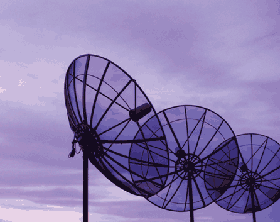

Time to break up the communications trusts?
COMMENTARY | June 168, 2011
Telecom analyst Bruce Kushnick says Verizon, AT&T, and Comcast are dragging down the nation’s economy and bilking millions of Americans. The chief firms in the communications oligopoly got $340 billion to upgrade telephone and broadband systems but have almost totally reneged. Instead, they manipulate data and buy support from experts and citizens groups. In response, regulators on the federal and state levels…well, there is just about no response.
By Bruce Kushnick
bruce@newnetworks.com
In 1992, I stood at the podium of the National Press Club and suggested ”Divestiture II”. Simply put, in 1984 AT&T, a company that once controlled almost all telecommunications in the U.S., was broken up, its monopoly over local, long distance and even telecom equipment ended. A federal judge ordered the first divestiture, separating the local phone companies, which became seven new “Baby Bells,” from the long distance part of the business, which went to AT&T.
In my talk, I suggested that the local phone companies, those poor babies, would never, ever open their networks to competition and if they did it wouldn’t matter because they controlled the fees their competitors would pay. I figured then that nothing short of taking away their ability to control the wires would ever allow for America to be Number 1 in telecommunications. Worse, I knew the companies couldn’t be trusted to ever properly upgrade the networks.
Unfortunately, I was right.
I knew all this because previously I had been a consultant to the telecommunications industry, and it was clear to me that my then-clients were able to have their own way with government. They would submit questionable cost models to public service commissions or the Federal Communications Commission (FCC), and there was no force, not the FCC, Congress or the state commissions that showed any desire to monitor them in the public interest.
Now, almost 20 years later, my group, Teletruth, is calling for divestiture again. We advocate not only breaking up AT&T and Verizon’s controls over the wires, but also separating AT&T and Verizon’s wireless and wireline businesses, and preventing the cable companies from owning or controlling the content they transmit. The communications trusts are harming the economy and bilking millions of individuals – most people, in fact – and this will continue over the next decade. America should have been No.1 in broadband, which would have helped drive the economy. Instead, it is a pitiful 15th.
In my first Nieman article, in March 2006, I outlined the failure of the companies to properly upgrade America’s telecom/broadband infrastructure. By 2010, the old copper wiring of America’s utilities, the Public Switched Telephone Networks, were to have been replaced with fiber optic cable capable of at least 45mbps in both directions. The companies were paid about $340 billion for these upgrades. Each state created deregulatory policies, sometimes called “alternative regulations”.
Some of the state commitments were enormous. Pacific Bell in California claimed it would spend $16 billion by 2000 and furnish 5.5 million homes with upgrades. Verizon, New Jersey, was to have 100 percent of the work in that state finished, as was Verizon in Maryland. Connecticut was to be completed by 2007. Ameritech, in five Midwestern states, was to have 6 million homes equipped with high-speed broadband by 2000; US West was to have half a million homes wired per year in their 12 states, starting in 1995.
None of this was done. In 2009, working with Columbia University’s CITI program and tasked by the FCC to supply information about ”historical evaluation of the relationship between previous such announcements and actual deployment,” Teletruth issued a report outlining the failure to deploy broadband based on commitments made.
Today Verizon and AT&T have 7 million upgraded-TV homes out of 120 million promised. The standard speed in America is 5-6 mbps, while in Hong Kong, for a price cheaper than DSL, customers have 1 gigabit speeds (1000 mbps). While actual speeds may vary, South Korea, France, and Japan have made 100mbps bi-directional services their standard.
Supporters of the Bells, often individuals or citizens’ groups funded by them, point out that these countries are smaller and more dense than the U.S. That is true, but then why isn’t work in individual U.S. states finished? Many of them are also small and dense. And why is there not a single 1 gigabit Verizon or AT&T city?
Some cities are dealing with the lag. In Chattanooga, the public utility (EBT) is planning 1 gigabit speed, and in Kansas City, Google is. But those are rarities. Today AT&T is rolling out inferior U-Verse, which still uses copper wiring to connect to residences. It is somewhat fast but in one direction only, with a top speed of 25 mbps, and the fees for use are high compared to any other broadband nation. And it seems AT&T is no longer going to be expanding the deployment.
Thus, AT&T is not only short-changing 22 states – that’s not what AT&T got billions for – but about half won’t get an upgrade at all. So far there hasn’t been a murmur from any regulators that I am aware of. Perhaps there would be more of a reaction if the mainstream press gave these issues the attention they deserve.
Verizon’s FiOS is faster, as it is a fiber optic upgrade. But Verizon has only about 3.5 million total FiOS TV customers and it has announced it has stopped new area deployment.
If Verizon is at a virtual stand-still and AT&T is rolling out seriously inferior services, then America is going to be economically sliding as other countries develop next-generation applications.
How to fix this? Not by following the FCC’s roadmap. For while Americans already pay among the steepest charges for broadband, as we discussed in a previous Nieman article, the FCC has plans to raise rates five different ways to fund the same companies that have taken in so many billions and failed to meet their obligations. And as I detailed in an article searching the FCC’s new $300 million dollar broadband mapping debacle, the FCC’s data on speed in the author’s neighborhood were simply made up.
Regulators need to do better. They need to see to it that the infrastructure is protected and developed. They need to tell AT&t and Verizon, finish the job or return the money and let someone else do it.
It’s time to examine a new future: an open, competitive broadband network. I’ll deal with that in my next article.
|
|
Bruce Kushnick has been a telecom analyst for 29 years, and is currently the chairman of Teletruth, an independent customer advocacy group focusing on broadband and telecom issues, as well as executive director of New Networks Institute, a market research firm. 
E-mail: bruce@newnetworks.com
|
Owner - Electric Services
Posted by
Keith
06/172/2011, 02:32 AM
Great article. How do we break up this major disaster? How do we get these companies to actually make the improvements that they were supposed to do previously?
I live in the woods, too far for DSL and less than half a mile from Comcast fiber optic cable. THey will not extend it tome and four other people on our hill. As a result I deal with satellite internet. A bit better than dial up, but not always, Their speeds advertised are 1 and 1.5 meg down.
My belief is that they are totally overselling their bandwidth and everybody suffers. They have lots of excuses but I am not seeing much action.
How do we get the FCC to step in and force some major changes?
|
Agree Agree Agree
Posted by
John Date
06/180/2011, 11:26 AM
Can't say more than this. We need to end the stranglehold these companies have on the American economy and the our productivity, or be prepared to pay very dearly for our inaction.
|
Disagree Disagree Disagree!
Posted by
Steve
12/355/2011, 11:56 PM
Seriously, I live on the my own Island and need a Del Taco like no ones business! Should I write Congress to force them to spend 640k or more just to provide services for just me and my family? Look, you live in the woods because you probably enjoy the seclusion, and don't enjoy the sirens of the city. Don't you think that this is one of the sacrifices you have already thought out before you moved there? Say your whiny but got the telco company to provide your services to the tune of 850k, is that fair to pass that cost on to those who have to listen to the sirens? That's what will happen, someone has to pay!
|
|
|
|
|





